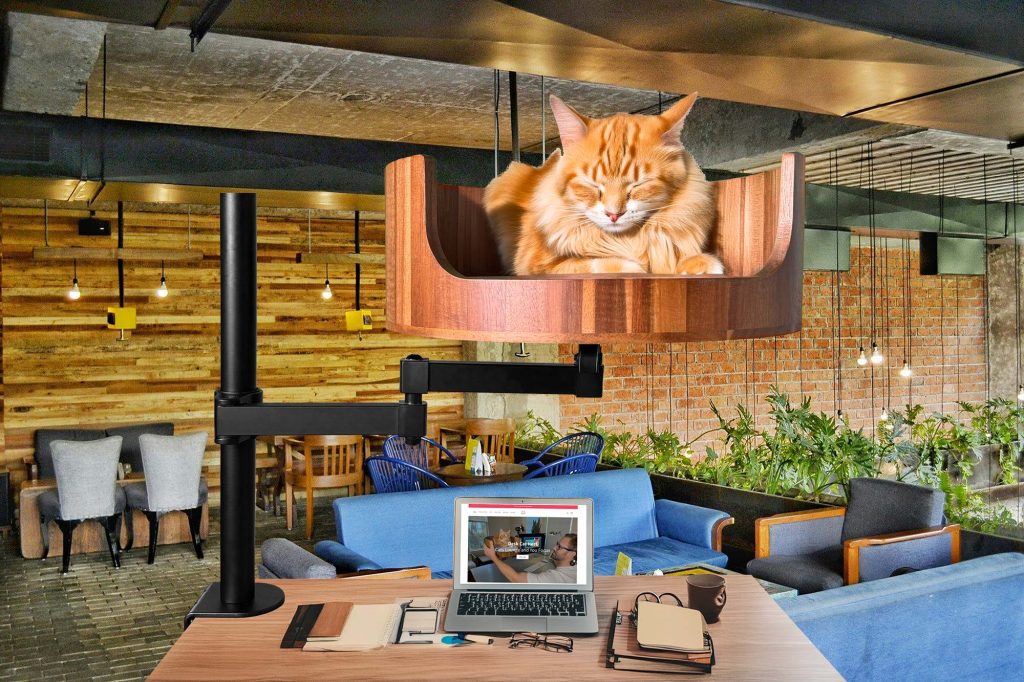Does your cat snore while sleeping? Have you ever wondered what those adorable snores actually mean? In this article, we will delve into the fascinating world of feline sleep sounds and explore the reasons behind why cats snore. From purring and chirping to growling and meowing in their sleep, cats exhibit a wide range of vocalizations while catching some Z’s. Understanding these sounds can provide valuable insight into your furball’s overall health and well-being.
Whether your cat is a deep sleeper or a light dozer, their nocturnal noises can be quite amusing and endearing. We will discuss the various factors that can contribute to your cat’s snoring habits, such as anatomy, age, and underlying medical conditions. By decoding your cat’s sleep sounds, you can better understand their mood, comfort level, and overall contentment. So, grab a cozy seat next to your sleeping feline friend and let’s unravel the mystery of Cat Snores together.
1. Cats snore for various reasons, including obesity, respiratory issues, and age-related changes.
2. It is important to determine the underlying cause of your cat’s snoring to ensure their health and well-being.
3. Regular veterinary check-ups can help identify and address any potential health concerns contributing to your cat’s snoring.
4. Providing a comfortable and quiet sleeping environment for your cat can help reduce snoring.
5. Understanding your cat’s sleep sounds can also help strengthen the bond between you and your feline companion.
1. Why Do Cats Snore?
Cats snore for a variety of reasons, similar to why humans snore. One common cause of cat snoring is a blockage in their nasal passages due to allergies, respiratory infections, or nasal congestion. Other reasons can include obesity, anatomical abnormalities in the nose and throat, or even stress. It is important to observe your cat’s snoring patterns and seek veterinary help if you notice any changes or unusual symptoms.
2. Types of Cat Snores
There are different types of cat snores that can indicate underlying health issues. For example, soft snoring may just be a result of your cat’s relaxation, while loud and persistent snoring could signal a more serious problem. Additionally, snoring that is accompanied by other symptoms such as coughing, wheezing, or difficulty breathing should be addressed by a vet promptly. Pay attention to the sounds your cat makes while sleeping to determine the type of snoring they are experiencing.
3. How to Help a Snoring Cat
If you notice that your cat is snoring more frequently or loudly than usual, there are steps you can take to help alleviate their snoring. Maintaining a healthy weight through proper diet and exercise can reduce the chances of obesity-related snoring. You can also keep your cat’s sleeping area clean and dust-free to prevent allergies that may be causing nasal congestion. Additionally, using a humidifier or air purifier in your home can help improve air quality for your cat’s breathing.
4. When to See a Veterinarian
While occasional snoring is normal for most cats, persistent or loud snoring can indicate a more serious issue that requires veterinary attention. If your cat’s snoring is accompanied by other symptoms such as gasping for air, excessive drooling, or changes in appetite, it is crucial to consult a veterinarian immediately. The vet can conduct a thorough examination to determine the underlying cause of your cat’s snoring and recommend the appropriate treatment plan.
Frequently Asked Questions
What causes my cat to snore?
Just like humans, cats can snore for a variety of reasons. Common causes include allergies, obesity, respiratory issues, or the position they are sleeping in. If your cat’s snoring is chronic or seems to be worsening, it’s best to consult with your veterinarian for further evaluation.
Will the Desk Cat Nest help reduce my cat’s snoring?
While the Desk Cat Nest provides a cozy and comfortable sleeping space for your cat, it may not necessarily eliminate their snoring. However, offering a supportive and soothing environment for your cat to rest in can potentially help reduce snoring episodes.
Is the Desk Cat Nest suitable for all cat breeds and sizes?
The Desk Cat Nest is designed to accommodate cats of various sizes and breeds. It features a spacious and plush interior that can comfortably fit most cats. However, it’s always a good idea to consider your cat’s individual preferences and habits when choosing a bed for them.
How do I clean the Desk Cat Nest?
To clean the Desk Cat Nest, simply remove the cushion and wash it according to the care instructions. You can also spot clean the exterior of the nest with a damp cloth and mild detergent. It’s important to maintain a clean sleeping environment for your cat to promote their overall health and well-being.
Can the Desk Cat Nest be used for cats with health issues?
If your cat has any underlying health issues that may contribute to their snoring, it’s important to consult with your veterinarian before using the Desk Cat Nest. While the nest can provide a comfortable sleeping space, it’s essential to prioritize your cat’s medical needs and ensure they receive proper care and treatment.
In conclusion, the Desk Cat Bed is a valuable choice for cat owners looking to address their feline friend’s snoring issue. By providing a comfortable and elevated sleeping space, this innovative bed can help alleviate potential breathing obstructions that may contribute to excessive snoring in cats. Additionally, the Desk Cat Bed is designed with cozy materials and a stylish aesthetic, ensuring both functionality and appeal for both cats and their owners. Invest in the Desk Cat Bed today and help your beloved pet achieve a peaceful and restful sleep with reduced snoring.


